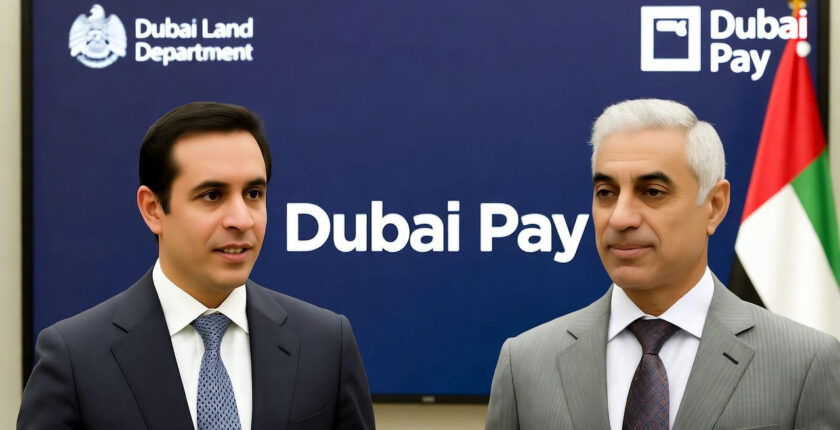Dubai Completes Crypto Payment Pilot: A Game-Changer for Government Services
In a bold stride toward digital innovation, Dubai has just wrapped up its first pilot test for accepting cryptocurrency payments for government services, seamlessly converting digital assets into UAE dirhams (AED) or AED-pegged stablecoins. Announced on October 16, 2025, this milestone—led by the Dubai Department of Finance (DoF) in partnership with the Dubai Land Department (DLD)—marks the UAE’s latest push to become a global hub for blockchain and fintech. Processed through the user-friendly Dubai Pay platform, the test not only proved technical feasibility but also underscored Dubai’s commitment to a “City as a Service” model, where government interactions are frictionless, secure, and future-proof.
The Pilot in Action: From Crypto to Instant Services
The pilot’s centerpiece was a real-world transaction: issuing a property map via the DLD, a common government service that typically involves fiat payments. Here’s how it unfolded:
- Partners Involved: DoF coordinated with DLD, Digital Dubai Authority, Emirates NBD Bank, and Foris Dax Middle East (the UAE arm of Crypto.com, which recently snagged in-principle approval from the Central Bank of the UAE for a Stored Value Facilities license).
- The Tech Stack: Users initiated payments in crypto through Dubai Pay, which handled instant conversion to AED or stablecoins like those pegged to the dirham. The entire process occurred in a secure, closed environment to ensure compliance with UAE’s stringent financial regulations.
- Key Outcome: The fee was settled in full AED, demonstrating seamless integration without delays or intermediaries. As Amina Lootah, Director of Digital Payment Systems Regulation at DoF, put it: “We successfully completed the first government transaction where digital assets were settled in dirhams.”
This isn’t just a tech demo—it’s a proof-of-concept for broader rollout. DLD has already signaled plans to integrate crypto payments fully by year’s end, potentially covering everything from real estate fees to utility bills.
| Pilot Highlights | Details |
|---|---|
| Transaction Type | Property map issuance fee via DLD |
| Payment Method | Crypto converted to AED or AED stablecoins |
| Platform | Dubai Pay (managed by Digital Dubai Authority) |
| Partners | DoF, DLD, Emirates NBD, Crypto.com (Foris Dax) |
| Compliance | Full regulatory adherence; secure closed-loop test |
| Timeline | Completed October 2025; full rollout eyed by Dec 2025 |
Why Dubai? The Vision Behind the Blockchain Bet
Dubai’s embrace of crypto isn’t accidental—it’s woven into the emirate’s DNA as a forward-thinking metropolis. Under the Dubai Economic Agenda (D33), the city aims for 90% cashless transactions by 2026 and positions itself as the “crypto capital of the world.” This pilot aligns perfectly:
- Efficiency Gains: Instant settlements bypass traditional banking hurdles, reducing costs and wait times for residents and expats alike.
- Global Appeal: With over 200 cryptocurrencies already licensed in the UAE, Dubai attracts digital nomads, investors, and tech firms seeking crypto-friendly governance.
- Regulatory Edge: The UAE’s progressive framework—via the Virtual Assets Regulatory Authority (VARA)—ensures secure innovation without the wild-west risks plaguing other regions.
H.E. Abdulrahman Al Saleh, Director General of DoF, emphasized: “At Dubai Finance, we are working to explore innovative financial solutions that enhance the government payment ecosystem and accelerate the transition toward a fully digital economy.” Meanwhile, H.E. Hamad Al Mansoori of Digital Dubai hailed it as a “major step forward in realizing the concept of City as a Service,” blending fintech with public services for a unified, seamless experience.
Global Implications: A Template for the World?
Dubai’s pilot isn’t happening in isolation—it’s part of a wave reshaping government finance. From El Salvador’s Bitcoin legal tender to Switzerland’s crypto valleys, nations are experimenting, but Dubai’s fiat-bridged approach stands out for its practicality. By settling in AED, it mitigates volatility while unlocking crypto’s speed and borderless appeal.
For businesses and users, this means:
- Faster Access: Pay fees on-the-go with a wallet, no bank queues.
- Inclusivity: Appeals to the growing crypto-savvy population in the Middle East, where adoption rates are surging.
- Scalability: Once live, it could extend to visas, licenses, and more, potentially processing millions in transactions annually.
Critics might worry about security or over-reliance on private players like Crypto.com, but the pilot’s controlled setup and central bank oversight address those head-on. As Dubai eyes full integration, expect ripple effects: other emirates, perhaps even Saudi Arabia, could follow suit in the Gulf’s fintech race.
Looking Ahead: Crypto’s Seat at the Government Table
This pilot isn’t the end—it’s the launchpad. With Dubai’s digital economy ambitions in overdrive, crypto payments could soon be as routine as tapping your phone for coffee. It redefines how we interact with authority: not through bureaucracy, but blockchain. As the UAE continues to license more virtual asset providers, one question lingers—will other cities catch up, or will Dubai leave them in the (digital) dust?
What’s your take? Ready to pay your taxes in tokens? Share in the comments below.
Sources: CoinCentral, Bitcoin.com News, FX Leaders, Coinlaw.io, and CryptoNewsLand reports.

